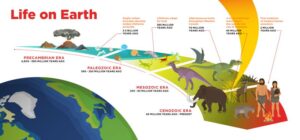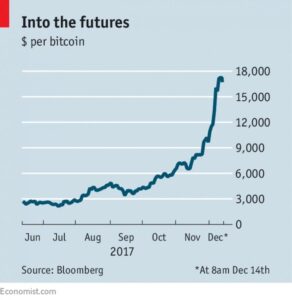The coronavirus (COVID-19) pandemic has revealed aspects of how the economy works (or doesn’t). It also has the potential to shift the Overton Window (the range of what is politically possible), as progressive solutions previously dismissed as “impossibly idealistic or too expensive” are now suddenly the best option for addressing major societal needs.
Two such solutions that now appear both possible and necessary in the United States are Medicare for All, and Universal Basic Income (UBI). As leaders debate around the edges (i.e. provide limited coverage for COVID tests, and means-tested, one-time stimulus/unemployment checks), the enormous societal needs pile up and demand a systemic solution rather than a band-aid.
Wouldn’t it be nice to have hope that the short-term fixes in the COVID-19 stimulus bills debated in the U.S. Congress could somehow snowball into larger permanent universal programs by giving people a taste of economic solidarity? Or maybe even that the pandemic will mobilize the masses to topple capitalism and usher in a new “humanity first” economic system? Could the pandemic even be a template for structural change that could re-align the economy to the necessities of climate change?
Unfortunately, the American political leadership thus far seems well insulated from populist discontent, and a more likely outcome is that the “stimulus” bills passed by Congress will only prop up the existing power structure in the hope that the worst impacts of the pandemic will pass in a few months, preserving corporate-led capitalism through the November 2020 election and beyond.
Whether or not the pandemic leads to a deeper questioning of the austerity mindset and inequitable economic system, it is still useful to view the pandemic as a test run for climate change and other global crises of the 21st century. With this in mind, what are the deeper issues and systemic solutions, and how can we move from one-time, short-term band-aids to long-term, universal programs?
Beyond GDP
The pandemic has revealed that our economic indicators are poorly suited to reflect people’s lived reality. As we shelter in place, waiting for it to be safe to leave our houses, many people are asking, what is the economy for? In the U.S. over 40 million people are unemployed, but the stock market simply does not care. Just as in wartime, when the stock market goes up alongside the body count, the Gross Domestic Product (GDP) measures aggregate spending without differentiating between “goods” and “bads.” We need new indicators that help explain to the public the type of economic activities that lead to real prosperity. The indicators must focus on people, the 99%, not just hedge funds and the billionaire 1%. On June 5, 2020, Feasta and the Cork Environmental Forum will be hosting a webinar on this subject titled “BEYOND GDP: Governance and Budgeting for Well-being.”
Growth and degrowth
Richard Douthwaite’s books including The Growth Illusion and The Ecology of Money describe the precariousness of an economy that requires constant growth to exist. The pandemic has revealed the extent to which the economy is a carefully balanced house of cards built on growth and debt. Growth and debt are intertwined, and both are complicit in causing the ecological crisis. As soon as growth decreases, debtors (the 99%) are faced with insolvency, and during a pandemic in countries with insufficient social safety nets, this could mean homelessness and starvation.
The positive interest rate is a proxy for the growth imperative. Private-sector money enters the economy through bank loans, which must be repaid with interest. A positive interest rate implies that banks will make loans only if they are repaid with additional funds. However, the money to pay that interest is not also created, meaning some actors will necessarily be forced into bankruptcy as part of the system. Scarcity is baked into the system, and we understand intuitively that if growth slows, let alone stops, everything will crash, and the pandemic could be the first domino.
A steady-state, less growth-dependent economy could have zero or negative interest rates. Even before the pandemic, governments had begun flirting with negative interest rates. In the short term, lowering interest rates can have a stimulus effect on the economy, by encouraging people to spend rather than save, and can reduce the cost of debt for the 99% including student loans and home mortgages. In the long run, a zero or negative interest rate could be a part of a future steady state economy.
Decoupling Economic Growth from Carbon Emissions
Economic growth is (almost?) always accompanied by increased carbon emissions. Some ecological economists have called for “degrowth” of the economy to meet the ecological limits imposed by climate change. Feasta’s CapGlobalCarbon project was initiated with a goal of decoupling the economy from carbon emissions by imposing an economy-wide cap on GHG emissions, mandating that upstream companies purchase allowances equal to the fossil fuels they extract or import, and returning the funds collected back to people as a carbon dividend.
As with the climate crisis, young people, people of color, and the most economically precarious populations are bearing the brunt. The pandemic has offered elected officials an opportunity to address the current debt deflation with a large amount of stimulus spending, which could be used to fund a universal basic income, a Green New Deal, and universal health care in the United States. As the Federal Reserve ramps up their quantitative easing (QE for Wall Street) programs, FEASTA and others are calling for “QE for the People” (basic income).
Novelties like negative priced oil and negative interest, in a world where young people are crushed by college loan debt, and unemployment is above 20%, where for many health care is unavailable and rent is unaffordable, mostly just point to a current economic system that is not working for people. The current economic system is not structured to accommodate degrowth, as shown by the impacts of a demand crash from the pandemic stay-at-home orders on the “precariat” (working people with limited job security who are often living paycheck to paycheck). People need income to live, but there are no jobs. A post-pandemic economy must include debt forgiveness and basic income.
The COVID-19 pandemic is revealing the fissures and problems of the current corporate-centric, austerity-based economic system, and providing an opening for a new system to be envisioned that values the Commons and people, including democratic socialism, climate dividends, and basic income. The pandemic is showing that in order to address the crises we are facing in the 21st century, we will need an economic system with the ability to function in a steady state or degrowth mode, and policy approaches such as basic income, Medicare for All, and an economic system decoupled from fossil fuels that value people’s health and well-being.






